Prime Minister Shinzo Abe and President Vladimir Putin plan to meet on December 15 in Abe’s hometown for the Yamaguchi summit. Japanese media were quite optimistic about the likely outcome until mid-November.1 If we tried to predict the results on the basis of the past demands by the two sides, then an agreement on a peace treaty with a territorial settlement as well as new economic cooperation would appear to be within reach.2 On the thorny territorial dispute, Abe’s shift to a “2 + alpha” strategy—a peace treaty in return for the transfer of the two small islands (seven percent of the total land area of the four islands) as Japan expresses modest expectations for alpha (further talks some day or some joint development)—is close to what Putin seemed to be accepting at the 2001 Irkutsk summit. On Russia’s major priority of economic cooperation, especially in developing the Russian Far East, Abe’s eight-point economic program unveiled in Sochi in May, along with the economic proposals now being vetted in his administration,3 has been warmly welcomed by Putin. This includes the prospect of what Russians call an “energy bridge,” a plan which aims to supply electricity in addition to gas and oil from Sakhalin to Hokkaido.4 Finally, the repeated “Vladimir-Shinzo” tête-à-têtes with only translators present are seen as a big boost of trust between the leaders, each of whom has a political base presumed to be solid enough to keep in check fellow nationalists who object to the compromises required.5 The recent presidential victory of Donald Trump could give these leaders one more incentive to cooperate at a time of uncertainty in U.S. relations.
Japanese officials expressed optimism about the progress being made in the frenzy of recent diplomacy. They conveyed an image of Putin strikingly at odds with the West. His thinking about the Asia-Pacific is divorced from anything he may be doing elsewhere, to the point that there is little reason in even remarking on his conduct in Europe, the Middle East, or at home. While Putin might, if isolated, support China in a confrontation with Japan, he is a balance-of-power realist keen on closer relations with Japan for economic and strategic reasons. The hope in Japan was not a one-time deal just to recover territory lost in 1945, but a lasting bond between great powers, which would find some common ground in shaping Asia’s regional architecture.6 It was assumed this would supplement, but in no way replace, the vital Japan-U.S. alliance. The key, to many, was Putin’s desire both to put this normalization issue to rest, as he pivots to the East, and his urgent need for large-scale investment, mainly in energy. Only recent signals from Moscow, including the November 15 corruption arrest of Economic Development Minister Alexei Ulyukayev, the official in charge of economic talks with Japan, have lowered expectations.
Russian officials and Russian media have continuously been more cautious about the summit’s promise. They’ve made comments such as:
- Putin lost face when Japan accepted his concessions at the Irkutsk summit and then backtracked on its own, so Japan has to go first this time;
- Japan must recognize that, unlike in the Yeltsin era, it matters that this be seen as a deal between a war victor and a war loser, and this has bearing on how sovereignty will be treated;
- The Russian public must be persuaded to trust Japan, which begins with confidence in far-reaching economic ties;
- And, even if Putin does not insist on Japan renouncing the G7 sanctions over Ukraine, to establish the “right atmosphere” is much more necessary for economic agreements.7
Thus, Russians have avoided strong expectations for the Yamaguchi summit, while expressing obvious satisfaction with what Abe has been doing and the respect he has been showing Putin.8 The overall Russian theme is still to stick with China and doubt Japan as a U.S. ally.9 Yet, as Japan offered more economic carrots, the Russian tone was somewhat more hopeful in September and October before Moscow decided to damp down expectations in November for reasons Japanese are trying to explain.
Pessimists, both in Japan and abroad, argue that Putin will demand too much of Japan, that even if a deal is reached the foundation for it is too fragile, and that Abe is guided by illusions likely to be exposed before long. As for Putin’s demands, the 68-point Russian wish list for economic cooperation he presented to Japan in October defies economic realities that hold back Japanese companies, while also threatening to bust the sanctions regime.10 Another apparent obstacle is the desire of some in Russia to have Abe acknowledge that Russia has a right to the Southern Kuril/Northern Territory islands, i.e. sovereignty, before it transfers two.11 The more eager Abe was to reach an agreement, the more Putin seemed to move the goalposts with new preconditions.
The Significance of a Breakthrough
The fact that so much more than a territorial demarcation is at stake is why this is no ordinary summit and why a deal seems illusive to some. Abe is in a hurry and is defiant of the Obama administration for reasons that require explanation. The main factor is the emotional appeal of the recovery of territory as a balm for a chastened Japan, which would not have resonated two decades ago in a more confident Japan, which regarded the abandonment of claims over the other islands as a terrible loss. A second factor visible in some Japanese media is a deal’s significance for forging a more autonomous foreign policy, as seen in the blame some give to Washington for pressuring Tokyo not to cut a deal for two islands with Moscow in 1956, and, lately, opposing Abe in order to keep Japan dependent, according to rather twisted logic.12
Those blaming the United States for thwarting an earlier deal earlier ignore the Soviet demand for a neutral Japan as if Tokyo could have stayed aloof from the Cold War, and they forget U.S. encouragement for a Japan-Russia deal in the 1990s as good for integrating Russia into the international community. Most of all, they are showing a lack of “internationalism” in denying responsibility for managing the behavior of Russia as it is launching a new cold war with the United States and much of Europe. Given Abe’s revisionist pedigree and ideology, what some view as a “realist” pursuit by Putin to limit Sino-Russian ties may hint at an imminent national identity challenge to the U.S. view of history.13 Yet, for the upcoming summit, the territorial deal is primary, the economic and strategic goals secondary, and the overall national identity context remains a speculative, distant prospect not on the diplomatic agenda. And, with Trump downplaying concerns about Putin, Abe may have more room to maneuver on identity. Yet, some in Japan have decided that Putin no longer needs Abe since he is expecting that Trump will deal directly with him to remove the G7 sanctions.14
Should an agreement, in principle, be reached, the foundation for building on it is unlikely to be as solid as Japanese sources assume. For example, Russia’s stance on North Korea and the missile defenses to defend against it contravenes comments in Japan about the progress of strategic dialogue with Russia on North Korea. Presuming that a deal with Russia will transform its reasoning on how to resolve the North Korean nuclear crisis or the value of its close ties to China as the main pathway to East Asia and oppose U.S. alliances is a big stretch, which assumes a geopolitical significance for Japan that Russians do not see. Yet, benefits to both sides mean that the strategic factor should not be a serious barrier.
A territorial agreement, whatever the lines of demarcation, would not be a problem for the United States, but an economic windfall that defies the spirit of the sanctions regime has been a real concern for the Obama administration. An agreement that could eventually lead to boosting revisionism and reinterpreting key events of World War II would harm Japan’s relations with South Korea and the United States, and likely, arouse new distrust. The United States needs to make very clear that it is not the obstacle to a territorial agreement, but be careful to couch concerns as geopolitical reasoning.
The start of a new U.S. administration in 2017 will be an opportune time for a deeper strategic dialogue between Washington and Tokyo focused on managing the rise of China and the nuclear threat from North Korea. We will know if the dialogue meets recent concerns not by the usual official claims about the two countries having the closest alliance relations ever, but by how the Japanese media recasts its coverage of Russia. Should Russo-U.S. relations remain on a collision course and Japan-Russia relations enter a honeymoon mood after an agreement, there will be a shadow cast over the U.S.-Japan alliance. That is a heavy price to pay for a compromise long within reach. Ultimately, a more limited Japan-Russia agreement with few pretensions should not be seen as a U.S. concern.
What Is Still Needed for a Breakthrough?
Japanese media assumptions about Russia’s reasons for cutting a deal contrast with the way Russian media and specialists depict Japan’s need for a breakthrough. For example, a November 1, 2016 Japanese source15 asserted that because relations with the United States and Europe are poor, Putin regards drawing closer ties to Japan as a plus; that Putin wants to escape the excessive dependence on China since the Ukraine crisis began and plans to use Japan for balance; that investment from capital- and technology-rich Japan in the development of the Russian Far East is much desired given low oil prices and sanctions; and, that Abe’s emphasis on the benefits for Russia, as in his Sochi eight-point economic cooperation plan, will be the key to resolving the territorial dispute. Missing in this reasoning is any assessment of what Russians are saying about what is driving their side and what is Japan’s real impact. During the course of November, however, Russian negativity led Japanese to seek such answers.
Russian assumptions about Japan’s reasons for cutting a deal are less optimistic, but also one-sided in interpreting the logic behind Japanese diplomacy. If Japanese point to Russian isolation versus the West, Russians emphasize Japan’s fear of China and its weak position in Asia. If Japanese dwell on Russian economic weakness, Russians concentrate on Japan’s security alarm. Each side sees the other playing a weak hand, which gives rise to inflexibility, mainly on the Russian side, that could be a problem.
In previous periods of Japanese hyperbole about reaching a breakthrough with Moscow (1986-92, 1997-2001), there was also a disconnect in the messages being delivered to the public on each side, which did not bode well for concluding a deal. Yet, this time the Japanese side has been disciplined in preventing leaks, the media has been cautious in questioning the need for compromise, and the two sides have avoided the ups and downs of public reaction despite the Ukraine crisis’s impact. These are the main reasons to argue that the mistakes of past diplomacy will not be repeated.
Doubts on all sides about Putin’s seriousness arise from the disinterest to date by Russian negotiators in discussing the terms of a territorial arrangement, and from Putin’s recent hints that Japan has not yet built enough trust with Russia to proceed with talks that might lead to an agreement. This contrasts to China’s success in forging trust prior to the 2004 Sino-Russian border demarcation agreement.16 Refusing any deadline for reaching an agreement in negotiations, Putin on October 27 gave the impression that he is demanding much more from Abe than Abe has offered so far.17 Putin may calculate that he must wrest any economic concessions from Abe before a deal is reached or else he would lose his leverage. He no doubt is aware that companies in Japan are wary of investing in Russia, having been burned before, and that only arm-twisting by an Abe pressured to do more in order to secure his territorial deal, will lead to memoranda of understanding to accompany a peace treaty agreement. Complicating the situation is nervousness in some companies not only about risks, but also about what could happen if Washington decided they violated G7 sanctions. The message from Russia in November was more disheartening for Abe, leaving vague why Putin is balking now.
Conclusion
Japan-Russia relations stand at a crossroads with parallels to 1956. Opportunities supposedly were missed then, as after the end of the Cold War, but the Yamaguchi summit was viewed by some as the last chance to remedy the situation. An agreement will be challenging, owing not only to differences over what is “alpha” in a territorial deal and the economic payoff to Russia, but also to Putin’s geopolitical reasoning. Yet, each would gain leverage in facing the uncertainty from the Trump transition, while also anticipating that “making America great again” serves conveniently to validate obsessions with making Russia great again and for recovering Japan’s honor as it finds a path to validate Abe’s aim for a “normal Japan.”
Should talks be reenergized in the short period before Putin’s visit, much remains to accomplish. Japan is pressing for “alpha” to be more than nominal. Otherwise, Abe will be faulted at home. Russia is insistent on big deliverables, such as a far-reaching “energy bridge,” or Putin might have trouble persuading his base that he did not give away too much. The Ukraine crisis has delayed and complicated an agreement, raising the stakes for Russia and testing Japan-U.S. relations more than otherwise. Given the implications for the sanctions regime, U.S.-Japan relations are a concern if Washington perceives Abe as yielding to Putin’s economic conditions. Should Abe find Trump’s view of Russia more accommodating and less concerned about the sanctions, then this obstacle could be removed, even if Abe still has to face the skepticism of Japanese companies over investment risks. An additional challenge is whether Putin will agree to two different ways of thinking about history and sovereignty or will insist that Abe only acknowledge Putin’s viewpoint. A lot must be resolved quickly, and the timing matters since Putin is afraid Japan’s economic offers could be withdrawn without Abe receiving clarity on several points. The degree of economic generosity may depend on the extent of the “2 + alpha” plan in talks.
It is still possible that Abe and Putin will agree on a Yamaguchi Declaration, which reconfirms Russia’s readiness to transfer two islands to Japan and recognizes the substantial economic cooperation that Japan is committed to pursue. Abe will advertise this as a victory for the aged refugees and their descendants as well as the fishing community in Hokkaido, and as success in realizing his top priority for relations with Russia for 2016. Putin will portray himself as an international statesman not isolated by the G7, successful in his “pivot to Asia,” and making marked progress in his plan for the development of the Russian Far East. Such a minimal outcome, improbable as it has become of late, is unlikely to have major geopolitical consequences, given the continued strength of Japan-U.S. and Sino-Russian relations, or major economic impact, given Russia’s enduring difficulties. Failure to achieve even this will be testimony that Putin is waiting for Trump, leaving Abe, for now, in the lurch.
-
Footnotes
- Yomiuri Shimbun has been the voice of the Abe administration on this, e.g., revealing on September 23 the definitive shift to “2 + alpha” in place of “4 islands in a batch” as Japan’s negotiating stance on the islands.
- For background on the prospects for an agreement as of Spring 2016, see Gilbert Rozman, ed., Japan-Russia Relations: Implications for the U.S.-Japan Alliance (Washington, DC: Sasakawa USA, 2016).
- Japanese newspapers reported almost daily on economic ideas under discussion, as in the November 3, 2016 Sankei Shimbun coverage of the visit to Moscow of the new specially appointed minister for economic cooperation with Russia, Seko Hiroshige.
- Suzuki Muneo, “Nito senko ga genjitsuteki,” (The Return of Two Islands First Is Realistic), Sankei Shimbun, November 6, 2016, p. 2.
- For what is called the inside story of the secret Abe-Putin negotiations, see “Hoppo ryodo ga hontoni modotte kuru!” (The Northern Territories Will Really Be Returned!), Shukan Posuto, October 14-21, 2016, pp. 40-47. Although the details of the 55-minute private Abe-Putin meeting in Vladivostok and their earlier 35-minute exchange in Sochi are tightly guarded, they have clearly boosted the rapport between these two leaders.
- This objective is generally obscured, as many see the talks as narrowly focused. Much depends on what Abe is thinking, which has not been well communicated. In commentaries, as by Suzuki Muneo who has met with Abe seven times over the past year and was the politician who orchestrated the Irkutsk summit, U.S. interference is often blamed for the troubled relationship from the failure to sign a peace treaty in 1956. “Quiet negotiations” are explained, in part, as a response to US alarm. Tokyo Shimbun, October 7, 2016, p. 7; Sankei Shimbun, October 19, 2016, p. 2.
- For summaries of Russian sources discussing some of these themes, see “Country Report: Russia,” in Vol. 4, No. 5 and Vol. 4, No. 6 (2016) in www.theasanforum.org. In Vol. 4, No. 5 also see Dmitry Trenin, “On the Brink of a Breakthrough of Doomed to Fail Again: Will a Fresh Effort at Repairing Russo-Japanese Relations Bear Fruit?”
- For former ambassador Alexander Panov’s comments, see Tokyo Shimbun, October 13, 2016, p. 9, Also see Dmitry Strel’tsov, Mainichi Shimbun, October 19, 2016, p. 13.
- Vitalli Vorob’ev, “Stykovka na strategicheskoi orbit,” Rossiia v Global’noi Politike, September 8, 2016.
- Tokyo Shimbun, October 12, 2016, p. 6.
- Sankei Shimbun, October 16, 2016, p. 1.
- This was a popular theme on October 19, 2016, when the sixtieth anniversary of the normalization of diplomatic relations but without a peace treaty was recognized. See Tokyo Shimbun, October 19, p. 5; Mainichi Shimbun, October 19. p. 5
- Gilbert Rozman, “Realism vs. Revisionism in Abe’s Foreign Policy in 2014,” The Asan Forum, Vol. 3, No. 1 (2015).
- See the editorial in Mainichi Shimbun, November 22, 2016.
- “「北方領土問題」急展開も!柔道愛好家のプーチン大統領が繰り出す解決策とは,” Nikkei Style, November 11, 2016, (http://zasshi.news.yahoo.co.jp/article?a=20161101-00010002-nikkeisty-bus_all&)
- “V. Putin Press Conference Following G20 Summit in Hangchow,” Russian Embassy in China, September 6, 2016.
- “露大統領に踊らされる日本のメディア — 中村 仁,” Agora, October 31, 2016, (http://zasshi.news.yahoo.co.jp/article?a=20161031-00010011-agora-soci)
The Brookings Institution is committed to quality, independence, and impact.
We are supported by a diverse array of funders. In line with our values and policies, each Brookings publication represents the sole views of its author(s).
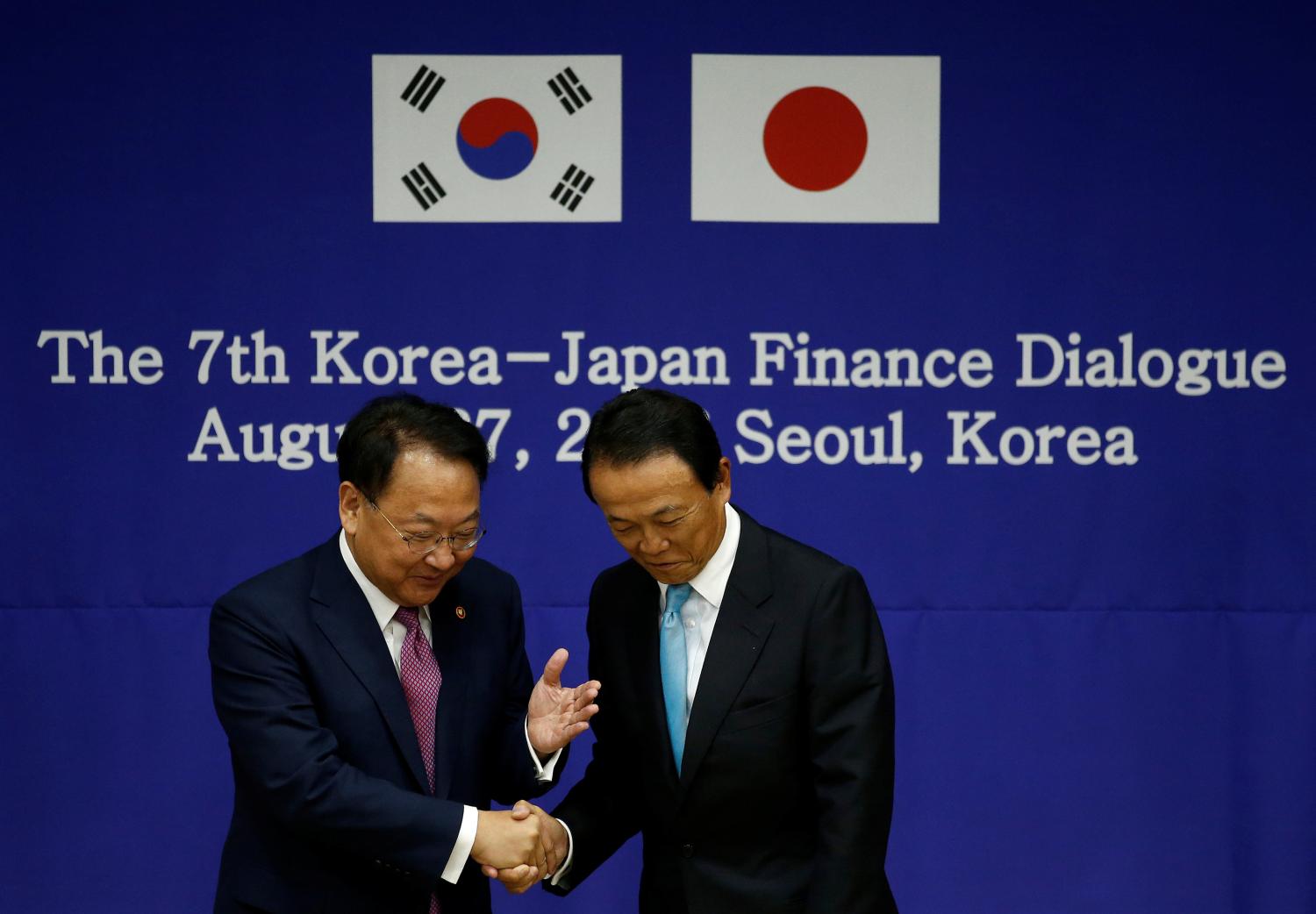
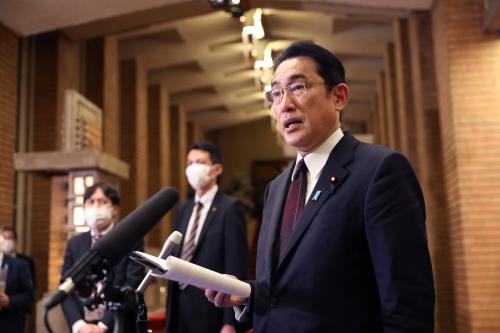

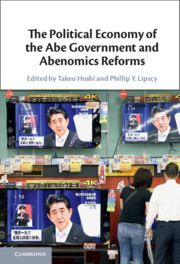
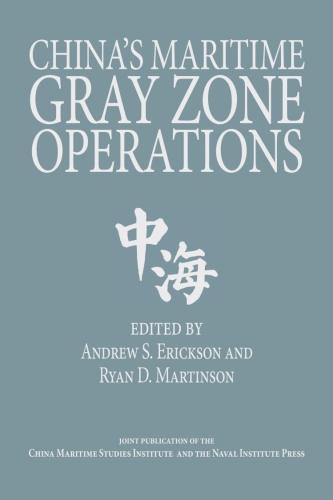
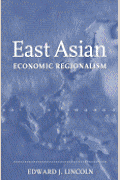

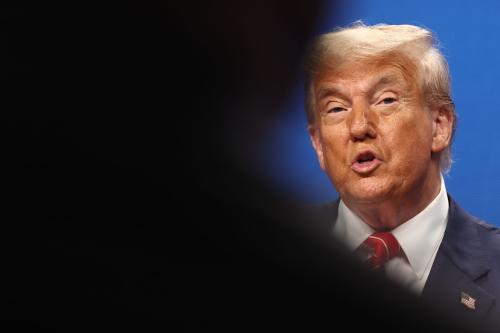
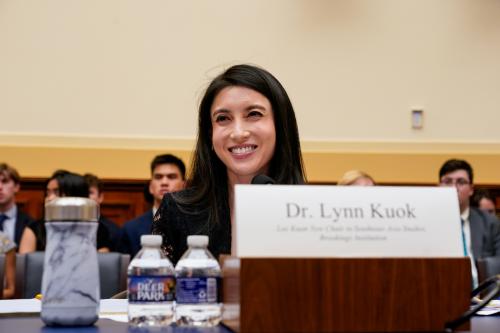
Commentary
Op-edWill Japan and Russia reach a breakthrough at the Yamaguchi Summit?
November 2016